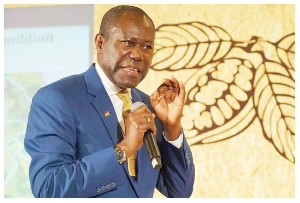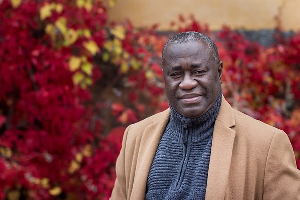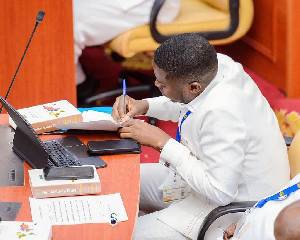The Ghana Cocoa Board (COCOBOD) has announced a significant change in its financing strategy for the upcoming 2024/2025 cocoa crop season, beginning in September 2024.
After 32 years of relying on offshore borrowing to fund cocoa purchases through its cocoa syndication programme, COCOBOD is set to transition to self-financing to reduce its dependency on external funds.
During a media briefing on Tuesday, August 20, COCOBOD’s CEO, Joseph Boahen Aidoo, highlighted the expected benefits of this new approach, which includes an estimated savings of US$150 million.
"Is it good that always COCOBOD should be heard going to borrow? Are we comfortable with that tag? Today, you have heard that COCOBOD is not going to borrow. It is quite a good time for any human being to learn his or her lessons," Aidoo stated.
Reflecting on the past decades, Aidoo emphasized the importance of COCOBOD's decision to move away from reliance on offshore financial markets.
"In 32 years, we have learned our lessons, and we think that it is high time we wean ourselves from the offshore international financial markets and then finance the crop ourselves here. And that is exactly what we are going to do. And I think it comes with a lot of projectory benefits."
Aidoo further explained the financial impact of this decision, noting, "We are looking for $1.5 billion this crop season, and looking at the interest rates last year, which were over 8 percent, plus the cost, it means that we can save more than $150 million by the decision not to go offshore."
Addressing concerns about cocoa pricing, Aidoo dismissed claims that COCOBOD was short-changing farmers.
He stated, "It is not true that COCOBOD is not giving the farmers a fair price. If you follow the narrative, you will notice that from 2017 on, COCOBOD has even been more than fair. The government had been more than fair to farmers because this was a time when prices had collapsed, but the government and COCOBOD did not reduce the farmers’ price."
Business News of Wednesday, 21 August 2024
Source: classfmonline.com

















